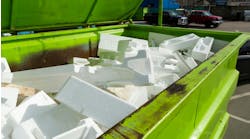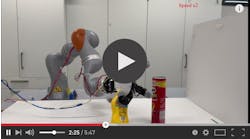Manufacturing has long been one of the most crucial growth sectors in the global economy. According to The National Association of Manufacturers (NAM), manufacturers in the US contributed nearly $2.366 trillion to the nation’s economy in Q3 of 2019.
Manufacturing is also one of the industries that undergoes consistent transformations, with technology making a tremendous impact on nearly every stage of the manufacturing process. Furthermore, the current industrial revolution, dubbed by many as Industry 4.0, is powering several prolific advancements in the manufacturing landscape.
One such advancement is the emergence and rapid acceptance of smart glass technology.
What is smart glass technology?
Smart glass, also known by several other monikers like light control glass or LCG, privacy glass, and switchable glass, has been in existence for many years. However, smart glass market demand has gained more prominence in recent years, owing to better raw material innovations and technologies, as well as creating a higher application scope across myriad sectors.
Smart glass is a dynamic component, which allows a material that brings a traditionally static material to life and makes it multifunctional. The technology allows the material to control various light forms including IR, UV, and visible light. Privacy glass products are based on a number of technologies that enable polycarbonates or glass, which are inherently transparent, to switch from clear to translucent or completely opaque, on-demand.
Essentially, smart glass technologies can control the amount of light that is transmitted through transparent materials, by allowing them to appear transparent, translucent or opaque as needed. These technologies allow manufacturers across several industries to resolve conflicts in design and handle functional demand for balancing the advantages of views, natural light, and open floor plans that require privacy and energy conservation.
Switchable glass technology can be incorporated into partitions, windows, and several other conventionally transparent surfaces across various industrial sectors such as retail, automotive, and consumer electronics.
With respect to technology, the smart glass market can be categorized into two segments: active and passive. Active smart glass is a component that requires an electrical charge and includes PDLC (polymer dispersed liquid crystal glass), SPD (suspended particle) glass, and EC (electrochromic) glass.
Passive glass, on the other hand, is a component that does not require an electrical charge and can be further classified as thermochromic glass, which includes coating windows that change according to temperature, and photochromatic glass, which response to sunlight.
Switchable glass technology is facilitating transformation in manufacturing across several sectors in the industrial landscape, including interior, product design, and automotive, among others.
The role of smart glass technology in characterizing developments in automotive manufacturing
Supply chain and manufacturing operations require persistent and steady evolution to keep up with changing industry requirements and customer perceptions.
In recent years, empowered by technologies and digitalization efforts in Industry 4.0, such as the advent of IIoT, manufacturers are increasingly making use of analytics and digital strategies to build deep and constructive customer relationships, reduce costs, and add value through customizations and integrations.
The smart glass industry is making significant strides in this regard, with various automotive manufacturers working to incorporate the technology into their new innovations. For instance, at the CES 2019, held in Las Vegas, Ford unveiled their new Feel the View technology, which employed smart glass to help visually impaired occupants “feel” the landscape with their fingers. Likewise, General Motors showcased switchable glass technology that is designed to keep children occupied during long commutes, by allowing them to draw on the smart windows.
Certain luxury automotive vehicle manufacturers such as McLaren and Mercedes already offer SPD glass on a number of high-end car models such as the Mercedes S-class sedan. While the technology is currently offered only in luxury models, automotive manufacturers are also working towards making the technology available for a more mainstream market in the future.
Smart glass technology could also be of great merit in the manufacture of more sustainable vehicles. Since these technologies have heat controlling properties, lower heat levels in the vehicles could allow manufacturers to reduce the size of air conditioner compressors by up to 40%, in turn reducing both the vehicle’s weight as well as cost. In EVs, this could mean a nearly 5.5% increase in battery range, even in hot weather conditions.
Technological transformations have been advancing the way manufacturers and supply chains operate for many years and will continue to do so even in years ahead. As trends like smart glass and other technologies contribute to newer evolves, manufacturing processes will become quicker, more accurate and economical, in turn paving the way for higher product quality and improved outputs in the years to come.
Global Market Insights Inc. has a market report dedicated to global smart glass, available at https://www.gminsights.com/industry-analysis/smart-glass-market.











